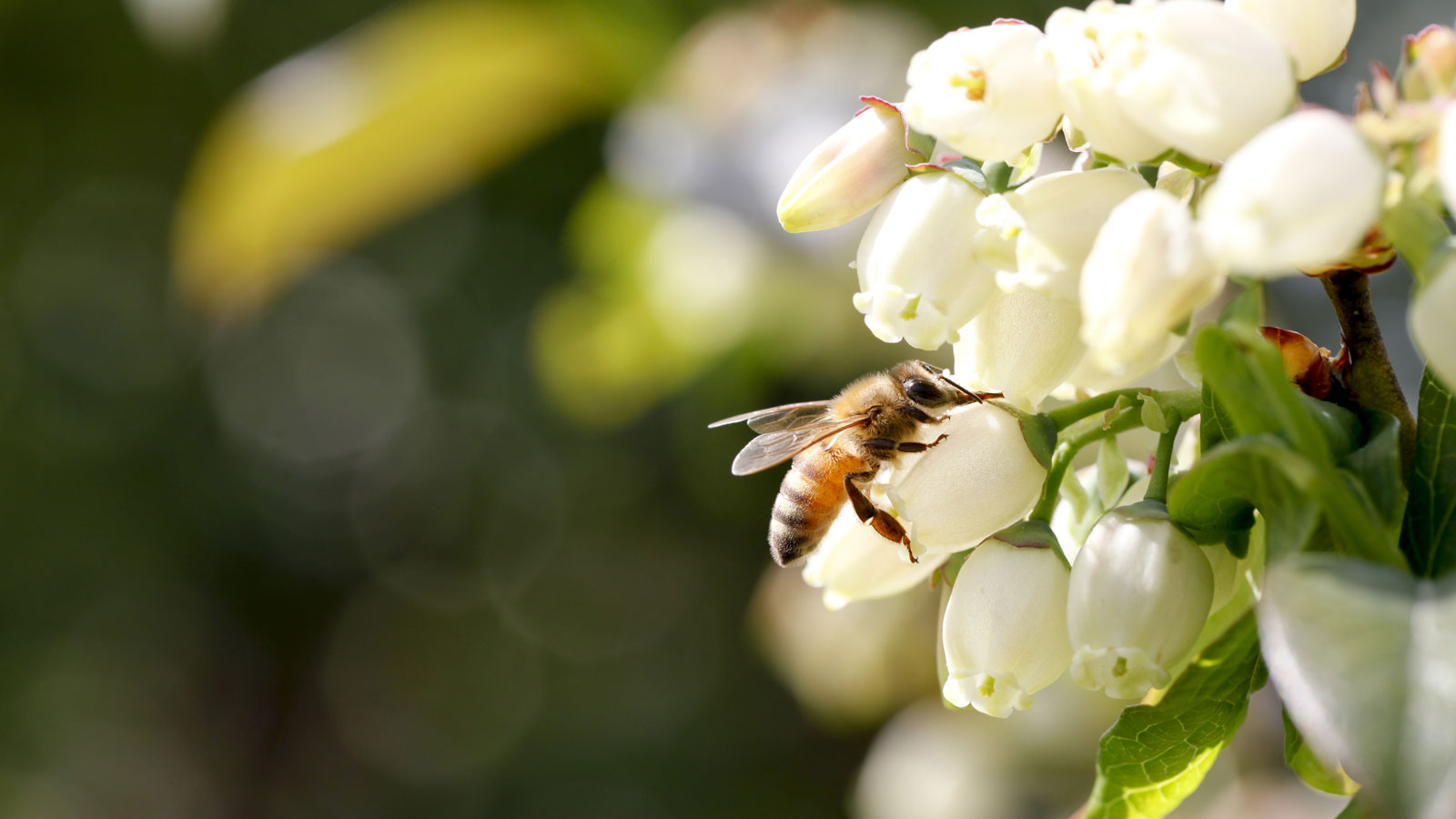
Tell Amazon: Stop the sale of neonicotinoid pesticides
California's governor has signed a save the bees bill. Now 1 in 4 Americans live in a state that restricts bee-killing pesticides.
Updated
ADD YOUR NAME
President, Environment America; Senior Vice President, The Public Interest Network
Senior Director, Conservation America Campaign, Environment America
California Governor Gavin Newsom just signed a bill to save the bees, making California the 10th state to restrict bee-killing neonicotinoids or “neonics,” a class of pesticides harmful to bees.
Said Laura Deehan, state director for Environment California, “California is taking the sting out of an increasingly toxic environment for bees. We’re thrilled that one in four Americans will now live in a state that has taken this action.”
Earlier this year in Colorado, Gov. Jared Polis signed a bill limiting the use of toxic bee-killing pesticides, which made Colorado the ninth state to take such an action.
This state-by-state action is vital. Bees are dying. The rusty patched bumblebee is on the endangered species list. The American bumblebee should be on it. A recent study found a dangerous decline for the western bumblebee and linked the decline to climate, habitat and pesticides.
Here’s a quick look at the state-level progress to date:
Neonicotinoids (or neonics for short) are a class of pesticides that have been linked to bee die-offs. They’re 1,000 times more toxic to bees than DDT, and even sublethal doses cause a lot of damage. These neurotoxic pesticides attack bees’ brains, making it harder for them to sleep, forage, fly and even find their way home.
Fortunately, states are recognizing the threat these dangerous pesticides pose to bees, and they’re taking action to limit their use and sale. These are the nine states that have already passed laws to that effect:
Thanks to this progress, 1 in 4 Americans now lives in a state with this type of restriction on bee-killing neonics.
Which state is ready to step up next?
When it comes to maintaining our lawns and gardens, there are plenty of safe products on the market. Too many garden centers, however, still sell pesticides that are harmful to bees.
Conservationists have already helped convince Lowe’s to commit to phasing out the sale of bee-killing neonics for consumer use.
Now, we’re calling on Amazon, the world’s largest online retailer, to do the same. Our members and supporters have helped deliver tens of thousands of messages to Amazon, urging it to take bee-killing pesticides off its virtual shelves.
Progress is also being made at the national level:
Now, our network is urging the Biden administration to reinstate a ban on the use of bee-killing pesticides in wildlife refuges (the places bees should be safest) and call on the Environmental Protection Agency to restrict three of the most common types of neonics as they undergo a periodic review.
Of course, there’s still a long way to go to save the bees. They face a triple threat of pesticide use, habitat loss and climate change. And the policies that have been passed so far have mainly addressed the consumer use of bee-killing pesticides, while still allowing for agricultural use.
Still, no one thought it was possible to ban DDT or any other pesticide until Rachel Carson wrote “Silent Spring” and sparked an environmental movement. Together, we can keep that movement burning bright as we work to save the bees.
President, Environment America; Senior Vice President, The Public Interest Network
As president of Environment America, Wendy is a leading voice for the environment in the United States. She has been quoted in major national, state and local news outlets for nearly 40 years on issues ranging from air pollution to green investing. She is also a senior vice president with The Public Interest Network. She is a founding board member of Green Corps, the field school for environmental organizers, and Green Century Funds, the nation’s first family of fossil fuel free mutual funds. Wendy started with WashPIRG, where she led campaigns to create Washington state’s model toxic waste cleanup program and to stop the nation’s first high-level nuclear waste dump site. She is a 1983 graduate of Whitman College. She lives in Los Angeles with her husband and dog and hikes wherever and whenever she can.
Steve directs Environment America’s efforts to protect our public lands and waters and the species that depend on them. He led our successful campaign to win full and permanent funding for our nation’s best conservation and recreation program, the Land and Water Conservation Fund. He previously oversaw U.S. PIRG’s public health campaigns. Steve lives in Sacramento, California, with his family, where he enjoys biking and exploring Northern California.
